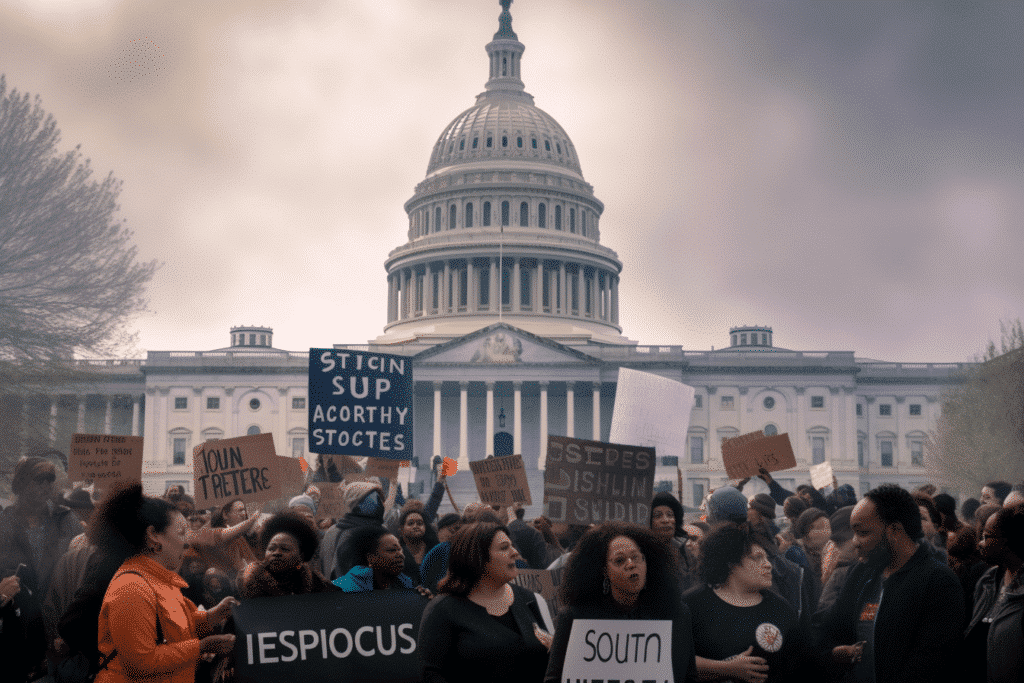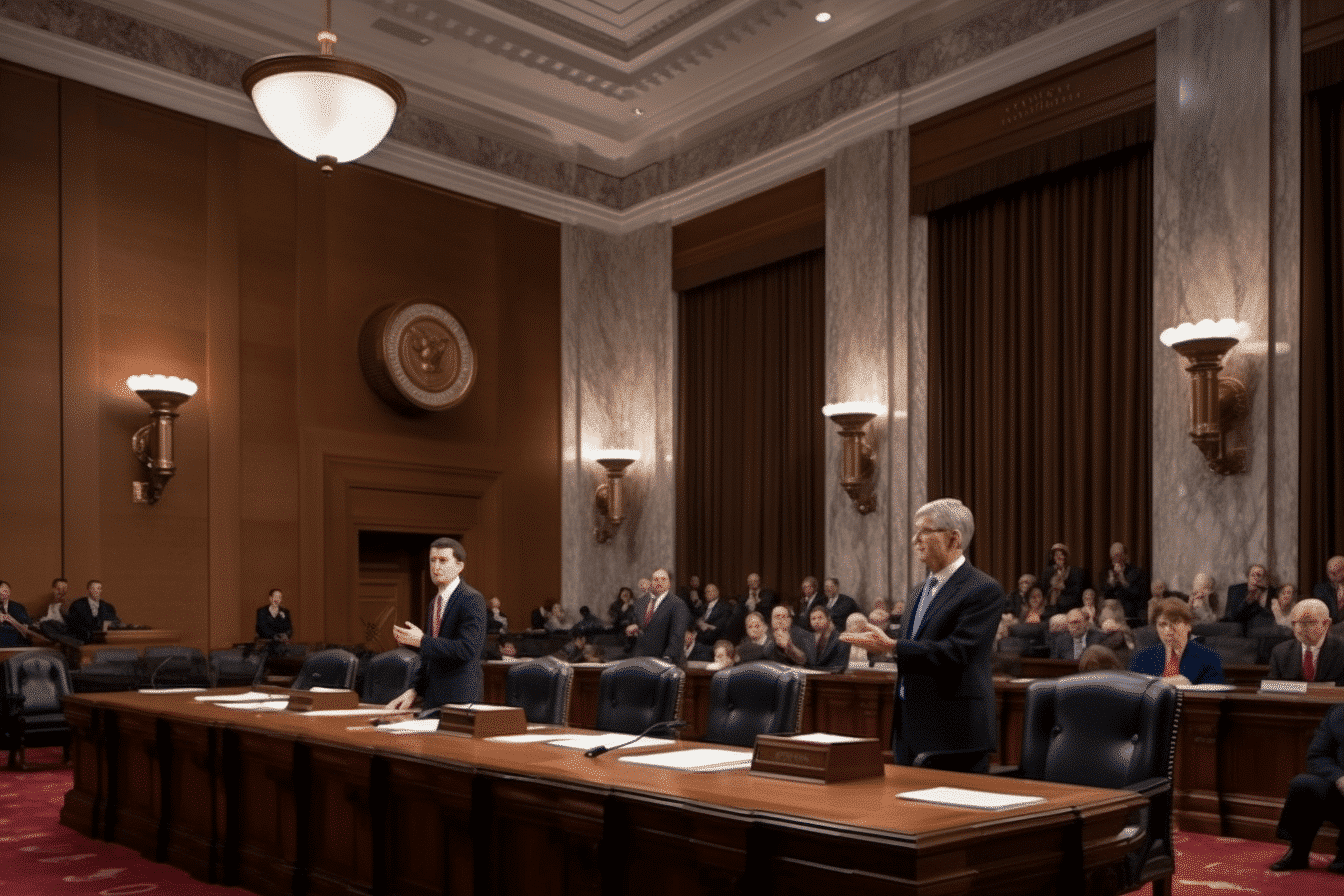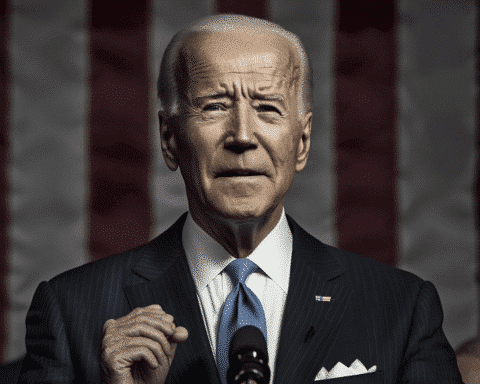Senate Democrats vowed on Tuesday to pursue stricter ethics regulations for the Supreme Court, following reports of Justice Clarence Thomas’ involvement in luxury vacations and a real estate transaction with a prominent GOP donor. Republicans, however, adamantly oppose the initiative.
Democratic Chairman of the Senate Judiciary Committee, Sen. Dick Durbin, expressed concern about the weak ethical standards, resulting in diminished public trust in the nation’s top court. Durbin stated that the Supreme Court could resolve the issue but has failed, prompting congressional intervention.
Republicans denounced the hearing as an attack on Justice Thomas, a leading conservative voice on the court. This disagreement between the two parties highlights the significant divide over the credibility of the Supreme Court, particularly after the landmark ruling overturned abortion rights last June.
Sen. Lindsey Graham, the committee’s ranking Republican, argued that the attack on Justice Thomas went beyond ethics and aimed to undermine the legitimacy of the conservative court appointed through conventional processes. Graham also warned that such allegations could jeopardize the safety of the justices.
The hearing was called following news reports revealing a close relationship between Justice Thomas and a conservative donor from Texas. According to ProPublica, the Texas billionaire Harlan Crow purchased three properties from Thomas and his family worth over $100,000, which Thomas never disclosed. Crow also allegedly gifted Thomas and his wife Ginni hundreds of thousands of dollars worth of vacations and trips over several decades.
While Chief Justice John Roberts declined to testify at the hearing, he provided a statement signed by all nine justices, outlining their ethical rules. The statement reaffirms the justices’ commitment to ethical principles and practices.
The senators heard testimonies from five legal and ethics experts, including former Attorney General Michael Mukasey. Mukasey defended Thomas, stating that recent criticisms of high court justices are unfounded. Other experts, like retired federal judge Jeremy Fogel and Kedric Payne, senior director of ethics at the Campaign Legal Center, emphasized the need for a stronger ethics framework and expressed concerns about eroding public confidence in the Supreme Court.

Democrats are pursuing legislation to establish a process for investigating misconduct at the Supreme Court, strengthen recusal standards, and improve transparency regarding travel and hospitality. They also aim to push for changes through the spending bill process, urging lawmakers to direct the Supreme Court to adopt binding and enforceable ethics rules.
Sen. Sheldon Whitehouse, who leads these legislative efforts, stated that the court has proven it cannot regulate itself. Republicans on the panel, however, continued to defend Justice Thomas, accusing the committee of engaging in “despicable tactics.”
As Democrats and Republicans remain divided on the issue of ethics overhaul for the Supreme Court, both parties face a difficult road ahead in finding common ground. With the recent focus on Justice Thomas and his connections with GOP donor Harlan Crow, the debate has become highly politicized, making bipartisan cooperation even more challenging.
The Democrats’ pursuit of legislative measures to strengthen the Supreme Court’s ethical framework has been met with strong opposition from Republicans, who argue that the hearings and proposed changes serve to undermine the court’s conservative majority. They claim the real motive behind the ethics overhaul is to discredit conservative justices like Thomas rather than genuinely addressing ethical concerns.
While some legal and ethics experts support the idea of a stronger ethics framework and increased transparency, others defend the current system and argue that the justices are being unfairly criticized. The polarized views on the issue may lead to a deadlock in Congress, making it difficult to pass legislation.
Despite the challenges, some lawmakers continue to push for change. Sen. Sheldon Whitehouse and other Democrats are determined to establish an investigation process for Supreme Court misconduct and improve standards for recusals and disclosure. They believe the lack of a formal code of conduct and the absence of a formal recusal process contribute to public distrust of the nation’s highest court.
Ultimately, the debate over the Supreme Court’s ethics overhaul underscores the deep divisions between Democrats and Republicans on the credibility and integrity of the nation’s top court. Whether both parties can find a way to address these concerns while maintaining the independence and impartiality of the judiciary remains to be seen.




